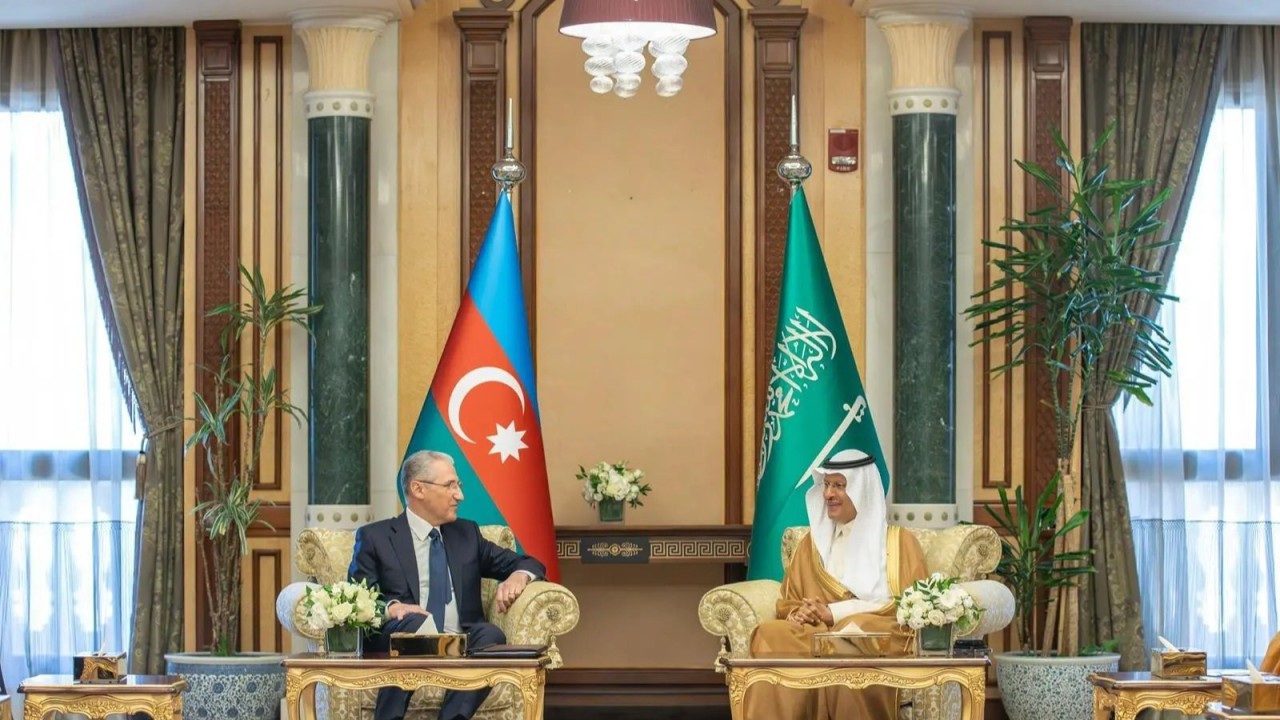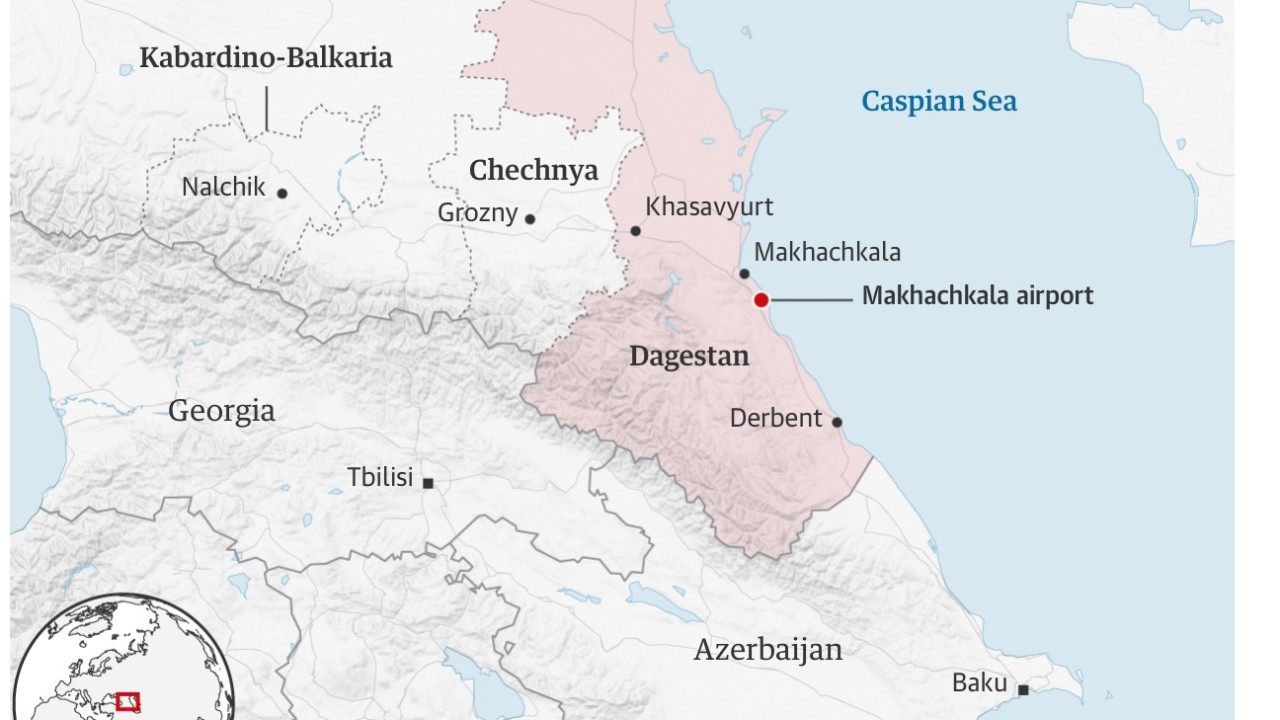Leading this week
Following the fatal Azerbaijan Airlines crash in December 2024 — attributed to Russian air defenses — Baku has launched a series of rhetorical salvos against Moscow. (Azerbaijan also shuttered Russian media outlets and Russia House, Moscow’s local information and cultural center in Baku.) The performative episode has drawn a host of commentary around the trajectory of the Russo-Azeri alliance, much of it premature.
Despite Aliyev’s chest-thumping, this spat is highly unlikely to derail the strategic partnership between Azerbaijan and Russia. The two partners collaborate across various critical portfolios (i.e., sanctions evasion and disinformation) and share common interests — chief among them, curtailing the West’s local footprint. (Russian and Azeri disinformation campaigns are targeting Western interests in the South Caucasus, Europe and Africa.)
According to observers, Azerbaijan’s animated response is strategically designed to “internationalize” the incident, sending not-so-subtle signals to Russia and the West. With this diplomatic maneuver, Baku seeks to secure greater transparency and mutual respect in its relationship with Moscow. (In its dealing with regional heavyweights — Russia and Turkey — Azerbaijan no longer behaves like a junior partner.) Recently, former Azerbaijani Foreign Minister Tofik Zulfugarov noted that the political noise surrounding the crash serves to emphasize Azerbaijan’s leverage over Moscow, rather than jeopardize its longstanding alliance.
Baku is also leveraging the crash to reshape perceptions of Azerbaijan-Russia ties across Western circles. Its heavy handed antics are intended to underscore Azerbaijan’s geopolitical significance — and autonomy. (Baku strives to be viewed as a regional power, distinct from Moscow’s sphere of influence.) In the process, Azerbaijan is also claiming distance from Russia, which expands its sway in Western capitals. Despite intimate ties with the Kremlin, Azerbaijan — via targeted disinformation campaigns and a network of influencers— has, at times, successfully crafted an image as a counterbalance to Russia. (Baku is also pitching itself to the Trump administration as a counterbalance to Iran, while maintaining significant covert ties with Tehran.)
This choreographed diplomatic saga highlights Azerbaijan’s unrivaled ability to manipulate information channels to expand its geopolitical flexibility. In time, Russo-Azeri tensions will subside and the status quo will endure — a partnership rooted in a shared geopolitical vision for the South Caucasus and Eastern Europe.
What we are watching
Backdoor to Washington. Azerbaijan, eager to bolster its regional grip, is leveraging its robust partnership with Israel to cement ties with the Trump administration. As part of its diplomatic gambit, Baku has positioned itself as a critical player in the development of “Abraham Accords 2.0.” The Abraham Accords, facilitated by the United States in 2020, normalized relations between Israel and several Arab states. Since the original set of agreements, Washington has sought to expand the accords, with a particular focus on Saudi-Israel normalization. (Progress stalled following the Oct. 7 attack by Hamas.)
As part of its strategic outreach to the Trump administration, Azerbaijan is positioning itself as an ideal candidate for an expanded Abraham Accords. (Baku also casts itself as a dependable ally against Iran — despite maintaining extensive bilateral cooperation.) To bolster its prospects, Azerbaijan is spotlighting its access to Central Asian regimes and securing strategic investments in Israel. (Last month, SOCAR acquired a 10 percent stake in Israel’s Tamar gas field.)
Azerbaijan is also working its diplomatic networks. Hikmet Hajiyev, Aliyev’s right-hand and foreign policy advisor, recently traveled to Tel Aviv for a one-on-one meeting with Israeli Prime Minister Benjamin Netanyahu to discuss Azerbaijan’s inclusion in the Abraham Accords. (According to diplomatic sources, Azerbaijan was also a key topic during last month’s discussions between Netanyahu and U.S. Secretary of State Marco Rubio.)
Like its regional counterparts, Baku views the Abraham Accords as a sure-fire way to gain sway with Washington — and secure concessions. (Morocco achieved Washington’s recognition of its sovereignty over Western Sahara, while Sudan sought to be removed from the U.S. list of state sponsors of terrorism.) Azerbaijan is poised to pursue similar, if not more ambitious, goals. In exchange for its diplomatic gesture, Baku likely seeks U.S. acquiescence for its geopolitical project in the South Caucasus — potentially including an invasion of Armenia.
Syria moves. In late January, Lieutenant General Hikmet Mirzeyev, the commander of Azerbaijan’s land forces, and his Turkish counterpart toured Turkey’s Kilis province along the Syrian border. (Mirzeyev, a former commander of Baku’s Ankara-trained special forces, played a crucial role in the capture of Nagorno-Karabakh.) The unusual visit — amid Turkish preparations for a possible invasion of the Kurdish-run statelet in northeastern Syria — sparked sustained speculation that Azerbaijani special forces may be embedded with Turkish troops. (In 2020, Turkey supplied Azerbaijan with Syrian mercenaries to help wrest control of Nagorno-Karabakh. Many fighters served as cannon fodder.)
Since the collapse of the Assad regime, Azerbaijan has actively engaged with Syria’s transitional government. Last month, Baku reopened its embassy in Damascus. And Azerbaijani officials — including Ilham Aliyev — have dispatched a series of missives to Syrian authorities. In a recent statement, Aliyev reaffirmed Azerbaijan’s alignment with Turkey on Syria, saying, “Azerbaijan is also ready to contribute, in coordination with Turkey, to ensuring stability, security, and addressing humanitarian challenges in Syria.”
(While Turkey maintains outsized influence in Syria, power dynamics remain fluid, with various regional players jostling for influence. Israel and the Gulf states are maneuvering to counterbalance Turkey’s clout.)
Escalating crackdown. Azerbaijan has intensified its crackdown on critics and media figures, signaling a further erosion of civic liberties. The Aliyev regime has increasingly targeted independent journalists, opposition figures, and civil society organizations, accusing them of undermining national security and stability. Just last week, opposition figure Akram Shabyev and journalist Nurlan Gakhramanly were jailed. And according to civil society organizations, the number of political prisoners now exceeds 357 individuals.
As part of its media crackdown, Azerbaijan has also shuttered foreign media outlets, including Voice of America and BBC. The popular Turan News Agency has also been brought to heel. (Following the closure of numerous local media outlets, these news agencies served as crucial sources of information for domestic audiences.)
(In recent months, the Turkish government has also launched a wave of repression against critics across the political spectrum, including figures linked to the main opposition Republican People’s Party. According to observers, Turkish President Recep Tayyip Erdogan is “taming” the political landscape in preparation for 2028 presidential elections.)
Why the world should care
Azerbaijan’s media campaign around the AZAL crash highlights the increasing sophistication of its external disinformation efforts. Despite maintaining intimate ties with Russia — and Iran, Baku has skillfully manipulated external narratives and framed itself in a favorable light, expanding its margin of maneuver. These deception tactics, drawn from the Soviet era, demonstrate how authoritarian regimes are increasingly adept at managing Western stakeholders to secure cooperation — and acquiescence.



